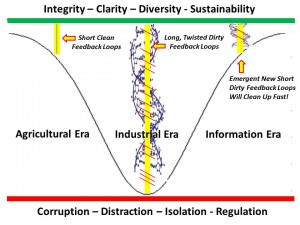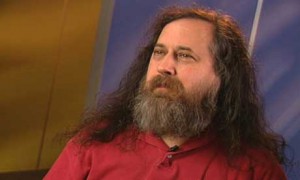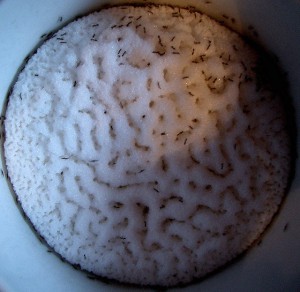
See Also:

Issue 53, August 2012
Welcome to the Free Software Supporter, the Free Software Foundation's monthly news digest and action update — being read by you and 60,580 other activists. That's 1,286 more than last month!
Encourage your friends to subscribe and help us build an audience by adding our subscriber widget to your web site.
Miss an issue? You can catch up on back issues at http://www.fsf.org/free-
Multilingual? Send translations of the Supporter to campaigns@fsf.org.
Continue reading “Richard Stallman: Free Software Foundation Newsletter #53 August 2012”

Huh?
Phi Beta Iota: As President Barack Obama faces what David Gergen calls one of three “choice” or turning point elections in modern US history, one has to wonder where he stands on the subject of the truth. Below the line is a methodical review with many links from retired Marine Corps officer Jim Fetzer, who focuses on the Cheney-dominated US Government at the time. Equally troubling facts can be asserted on the New York end by focusing on Larry Silverstein and Rudy Guliani. If ever a sitting President had a ready-made opportunity for eradicating an opposing political party by enabling the truth to be told about a major event in modern US history, Barack Obama is that President. We do not favor a traditional justice approach here, but rather a Truth & Reconciliation Commission. If Barack Obama were to sponsor The Smart Nation Act, the Electoral Reform Act of 2012, a Truth & Reconciliation Commission on 9/11, and the immediate decriminalization of marijuana and then of all other drugs [with a jobs program equal to the challenge of existing unemployment and emptied prisons with restored voting rights], it would be game over. Then instead of having to fight for credibility and traction every day, he might actually be able to govern in 2013-2016. On the other hand, if President Barack Obama and the Democratic Party are intent on demonstrating there is no substantive difference between the two parties that control the electoral process and the disbursement of the public treasury, they should continue to do precisely what they are doing now.
Continue reading “Mini-Me: Marine Officer on 9/11 – The Anomalies Continue to Surface”
The “anternet” discovered! How ants mimic Internet protocol
In a sign that nature still has an awful lot to teach us, a Stanford biologist and computer scientist have discovered that harvester ants hunt for food the same way Transmission Control Protocol (TCP) operates to determine and manage network congestion. That’s right. The foundation of the Internet is based on an algorithm that ants have used for millions of years.

The way ants use the networking process is by measuring the rate of return by hunters seeking food, and using that data to vary the number of individuals sent out to help with the effort. In other words, when early ant seekers return quickly after leaving the nest to find food, more ants are directed to help gather the spoils. However, when it takes longer for the first ants to return, that means that food is scarce, and more ants can stay home rather than following their brethren into the wild.
The Internet works in a similar way using TCP. If packets of data are acknowledged quickly by a receiver node, then the sender knows it can speed up the delivery rate. However, if acknowledged receipts are slower, then the sender knows the network is congested, and that it should slow down transmission accordingly.
Given that ants have been testing and engineering their own behavioral algorithms for millions of years, there’s likely still a lot that they can teach us about creating efficient networked systems. Maybe we should update that old parable about the ant and the grasshopper. If only the grasshopper had spent less time idling away the summer months, and more time designing simple and scalable algorithms…
Phi Beta Iota: When the human mind melds with the cosmic (extra-terrestial) and the Earth (intra-terrestial) minds, Utopia is possible.
See Also:

For all, this 55 year old teacher reveals that “our misfortunes” (ecological catastrophy, destruction of civil services in public administration, work slavery, the reign of money…) have been made possible “because of our incapacity to resist”. He indicates “I will do like Hippocrates did. I try to find the root of the causes. It is vain to fight against consequences.” He believes that this “impotency to resist”, this “infantilization”, is “programmed in the Constitution”. Since “those who write the Constitutions first think of how to preserve their own interests”, to “change things” and put in place “a real democracy”, he sees only one way forward: to randomly draw citizens who will write by themselves a new Constitution.
Phi Beta Iota: In French (verbal) with superbly executed English sub-titles. As soon as the film starts, roll the cursor over the second red button in lower right of the YouTube screen (has small white CC inside the red box) and click, this turns on the subtitles.
More by the same speaker, seven-part series on “Is Democracy a Trap?”

Innovation and the State of the Humanitarian System
Published by ALNAP, the 2012 State of the Humanitarian System report is an important evaluation of the humanitarian community’s efforts over the past two years. “I commend this report to all those responsible for planning and delivering life saving aid around the world,” writes UN Under-Secretary General Valerie Amos in the Preface. “If we are going to improve international humanitarian response we all need to pay attention to the areas of action highlighted in the report.” Below are some of the highlighted areas from the 100+ page evaluation that are ripe for innovative interventions.
Operational access to populations in need has not improved. Access problems continue and are primarily political or security-related rather than logistical. Indeed, “UN security restrictions often place sever limits on the range of UN-led assessments,” which means that “coverage often can be compromised.” This means that “access constraints in some contexts continue to inhibit an accurate assessment of need. Up to 60% of South Sudan is inaccessible for parts of the year. As a result, critical data, including mortality and morbidity, remain unavailable. Data on nutrition, for example, exist in only 25 of 79 countries where humanitarian partners have conducted surveys.”
Could satellite and/or areal imagery be used to measure indirect proxies? This would certainly be rather imperfect but perhaps better than nothing? Could crowdseeding be used?
Continue reading “Patrick Meier: Innovation and the State of the Humanitarian System + RECAP”

How People in Emergencies Use Communication to Survive
“Still Left in the Dark? How People in Emergencies Use Communication to Survive — And How Humanitarian Agencies Can Help” is an excellent report pub-lished by the BBC World Service Trust earlier this year. It is a follow up to the BBC’s 2008 study “Left in the Dark: The Unmet Need for Information in Humanitarian Emergencies.” Both reports are absolute must-reads. I highlight the most important points from the 2012 publication below.